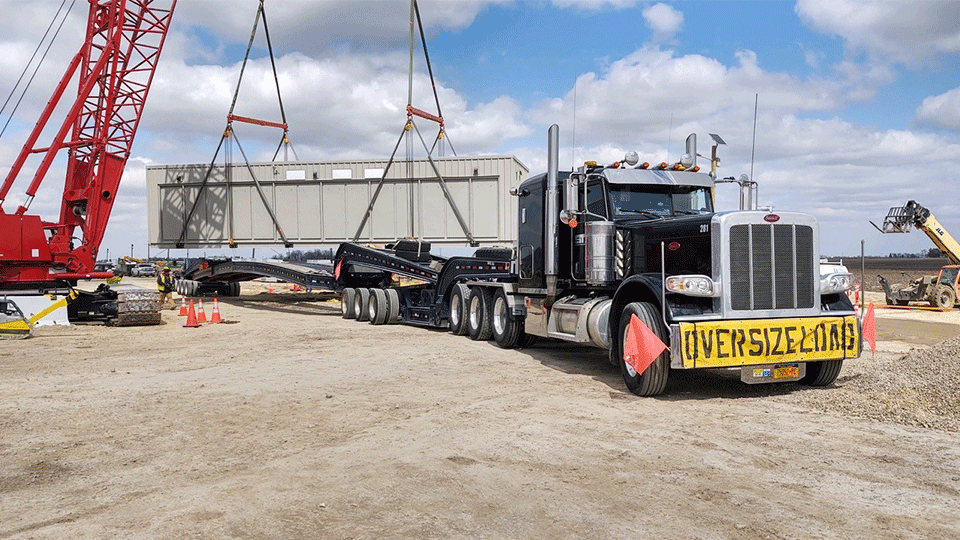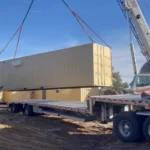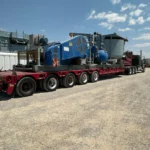If you’re a shipper or business owner in Houston, chances are you’ve heard about freight brokers. But the real question is: what does a freight broker do in Houston logistics operations, and why does their role matter so much? In a city known as a logistics hub for energy, manufacturing, and global trade, freight brokers have become the key link between shippers and carriers. They don’t just book trucks—they manage complex shipping needs, ensure compliance with regulations, and reduce costs for businesses.
In this guide, we’ll explore in detail what a freight broker does, the value they bring to logistics operations, and how Houston-based businesses can benefit from their expertise.
What Does a Freight Broker Do?
At its core, the role of a freight broker is to act as the middleman between shippers and carriers. Shippers need reliable transportation to move goods, while carriers look for consistent loads. A freight broker brings the two together by:
Negotiating rates and contracts.
Finding the most reliable and cost-effective carriers.
Ensuring shipments meet deadlines.
Managing paperwork, insurance, and compliance.
Tracking shipments for transparency.
In Houston, where freight volumes are high due to industries like oil, gas, and heavy equipment, freight brokers provide essential support to keep supply chains running smoothly.
Why Houston Businesses Rely on Freight Brokers
Houston is one of the busiest logistics centers in the U.S. With ports, railroads, interstate highways, and oilfield operations, businesses here face unique challenges in moving freight. That’s where freight brokers step in.
Key reasons Houston companies depend on brokers include:
Local Expertise – Brokers understand the traffic patterns, port schedules, and regional carriers.
Cost Savings – They negotiate better rates through carrier relationships.
Risk Management – Brokers ensure carriers meet compliance and insurance requirements.
Specialized Shipping – For heavy hauling, oversize & overweight loads, and specialized transport, brokers match the right carriers to the right jobs.
Freight Brokers vs. General Carriers
Many shippers wonder: why not just work directly with a carrier? The answer lies in flexibility. Carriers only offer what they can move with their equipment, while freight brokers give access to multiple trucking companies. This means:
Faster solutions when capacity is tight.
Access to oversize load trucking companies for unique shipments.
Ability to move freight across different modes, including flatbeds, step decks, and heavy equipment trailers.
For a deeper dive into this comparison, check out our related article: Freight Brokerage vs Freight Forwarding Houston: Key Differences Explained.

How Freight Brokers Support Heavy and Specialized Loads
Houston is no stranger to heavy equipment and large-scale projects. Whether it’s CNC machine moving, construction equipment, or oil and gas rig moves, brokers play a critical role.
They arrange:
Heavy equipment transport with the right carriers.
Permits for oversize & overweight loads.
Escort vehicles or oversize load pilot cars when required.
Safety protocols such as wide load flags and lights.
This expertise ensures compliance while keeping shipments safe and on time.
The Technology Side of Freight Brokerage
Modern freight brokerage isn’t just about phone calls and paperwork. Brokers use logistics software, load boards, and AI-powered tools to streamline operations. With real-time tracking and data analysis, they can:
Monitor shipments in transit.
Identify cost-saving opportunities.
Optimize routes across Houston’s highways.
Provide shippers with detailed shipment reports.
This level of visibility and efficiency is something most shippers cannot achieve on their own.
Legal and Compliance Responsibilities
Houston’s logistics industry is heavily regulated. Freight brokers take on much of this burden for shippers by:
Ensuring carriers have valid insurance.
Handling DOT compliance for oversize load transport.
Managing documentation for international or port-related shipments.
This reduces legal risks and protects businesses from costly mistakes.
Cost Savings and Efficiency for Shippers
One of the biggest reasons companies work with freight brokers is cost. In fact, according to logistics research, companies that use brokers can save up to 15–20% in annual shipping expenses due to:
Access to competitive carrier rates.
Reduced empty miles and downtime.
Consolidation opportunities for freight shipping.
Shippers also save time since brokers manage all communication and logistics with carriers.
Choosing the Right Freight Broker in Houston
Not all brokers are created equal. When selecting a freight broker, businesses should look for:
Experience with specialized loads such as trailer transport.
A strong carrier network in the Houston region.
Transparent pricing and clear communication.
Industry certifications and proper licensing.
If you’re considering hiring a broker, our guide Freight Brokers in Houston: How to Choose the Right Partner provides valuable insights.
Real-World Example: Freight Brokerage in Action
Imagine a Houston manufacturer needing to move a 20-foot flatbed trailer load of construction material across state lines. A general carrier may not have the right truck available, or their rates may be too high.
A freight broker, however, quickly taps into their carrier network, finds the right flatbed trucking company, negotiates a fair rate, and arranges permits for any oversized elements. The result: the shipper saves money, avoids delays, and keeps their project on schedule.
The Bigger Picture: Freight Brokerage as a Supply Chain Partner
When asking “what does a freight broker do,” the answer goes beyond simply booking trucks. They’re strategic partners who help businesses:
Scale operations without investing in trucking fleets.
Handle seasonal demand fluctuations.
Expand into new markets with reliable logistics.
In Houston’s fast-paced industries, this partnership can make the difference between a delayed shipment and a thriving supply chain.
Conclusion
So, what does a freight broker do in Houston logistics operations? They act as problem-solvers, cost-savers, and compliance experts. For shippers dealing with everything from oversized loads to routine freight, brokers provide the expertise and carrier connections that make logistics efficient and reliable.
By partnering with a trusted broker like Freight Guru, Houston businesses can focus on growth while leaving the logistics challenges to the experts.
If you’re ready to streamline your shipping, explore our freight brokerage services in Houston today.
Frequently Asked Questions (FAQs)
A freight broker connects shippers with carriers, handling negotiations, paperwork, compliance, and shipment tracking.
They save time, reduce costs, provide carrier options, and manage complex shipping needs like heavy hauling.
No. Brokers arrange trucking services within the U.S., while forwarders often manage international shipping.
Yes, experienced brokers specialize in oversize load trucking companies and arrange permits, pilot cars, and escort services.





